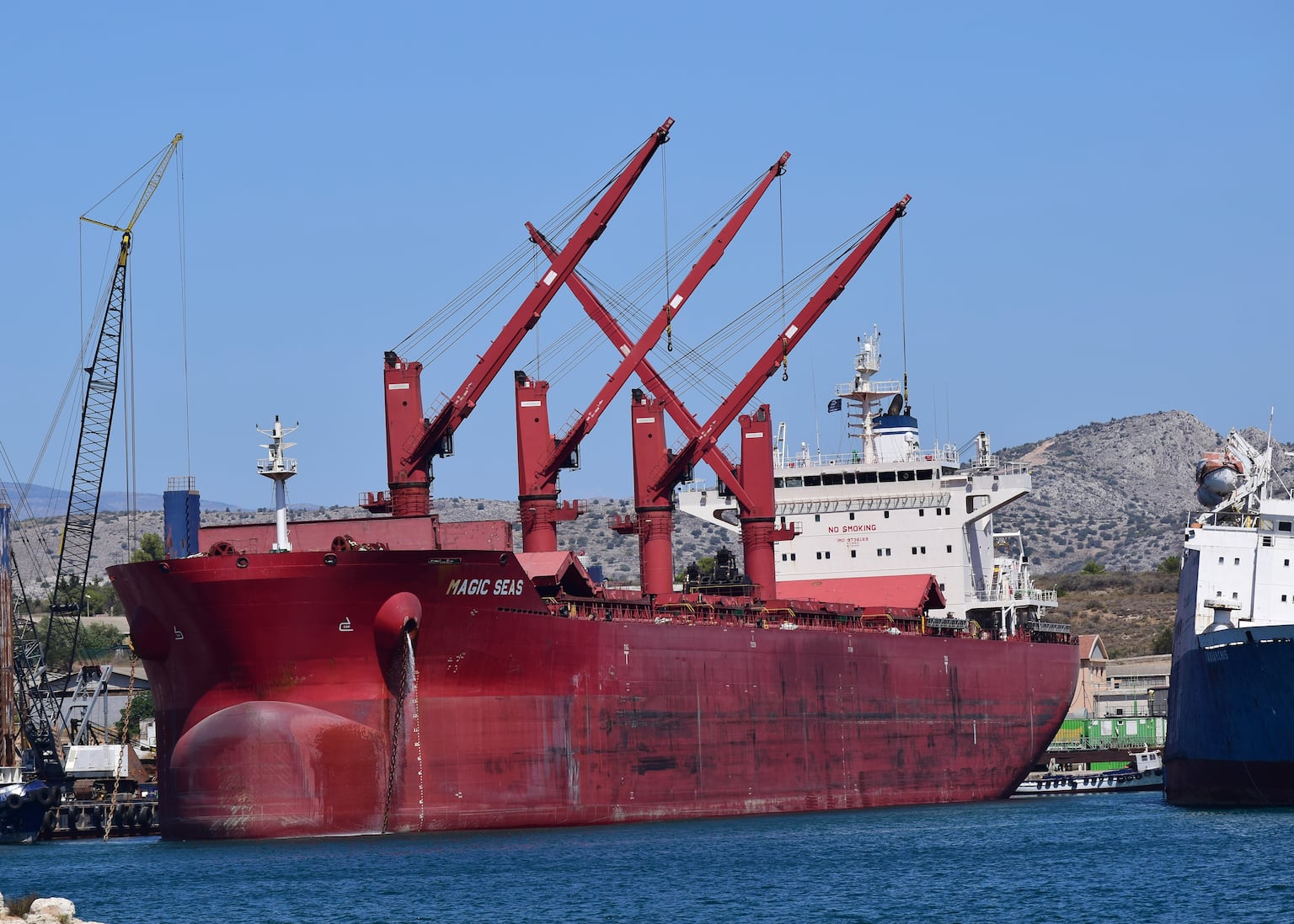Escalation in the Red Sea: Houthi Attacks and Israeli Retaliation
The conflict in the Red Sea continues to escalate as Yemen’s Houthi rebels claim responsibility for an attack on the bulk carrier Magic Seas, which has since sunk. The incident marks a significant development in the ongoing tensions between the Houthis and regional powers.
The Attack on the Magic Seas
According to military spokesman Brigadier General Yahya Saree, the Houthis used bomb-carrying drone boats and missiles to target the Liberian-flagged, Greek-owned vessel. The attack occurred on Sunday, leaving the ship ablaze in the Red Sea. Fortunately, all 22 crew members managed to abandon the ship and were safely rescued.
Saree stated that the Houthi rebels targeted the Magic Seas because it belonged to a company that continued to make port calls in Israel. This justification underscores the group’s broader strategy of targeting entities they perceive as supporting Israel, particularly in the context of the ongoing Israel-Hamas war.
Israeli Military Response
In response to the attack, the Israeli military launched strikes on Houthi-held ports in Hodeida, Ras Isa, and Salif, as well as the Ras Kanatib power plant. They released footage showing an F-16 fighter jet launching from Israel for the strike. The operation followed a warning issued by the Israeli military for the area.
The Israeli military claimed that these ports are used by the Houthi regime to transfer weapons from Iran, which are then used in terrorist operations against Israel and its allies. Additionally, the military struck the Galaxy Leader, a vehicle-carrying vessel that the Houthis seized in November 2023.
According to the Israeli military, the Galaxy Leader was equipped with a radar system used to track vessels in international waters, facilitating further attacks. The Bahamas-flagged ship was affiliated with an Israeli billionaire, though it was noted that no Israelis were on board at the time. The vessel had been operated by the Japanese firm NYK Line.
Houthi Reactions and Continued Tensions
The Houthis acknowledged the Israeli strikes but did not provide any damage assessment. Saree claimed that their air defense forces “effectively confronted” the Israeli military. However, the situation remains tense, with both sides continuing to engage in hostilities.
Israel has repeatedly attacked Houthi areas in Yemen, including a naval strike in June. While both Israel and the United States have previously targeted ports in the region—such as an American attack that killed 74 people in April—Israel is now acting alone in its attacks on the rebels. This shift highlights the evolving dynamics of the conflict.
Threats and Further Attacks
Israeli Defense Minister Israel Katz has threatened to launch further strikes, stating, “What’s true for Iran is true for Yemen. Anyone who raises a hand against Israel will have it cut off. The Houthis will continue to pay a heavy price for their actions.”
In response to the recent attacks, the Houthis launched what appears to be a missile attack on Israel. The Israeli military reported that it attempted to intercept two missiles but was unsuccessful. Although no injuries were reported, sirens were sounded in the West Bank and along the Dead Sea.
Context and Implications
The attack on the Magic Seas occurred approximately 60 miles southwest of Hodeida, a city held by the Houthis. The vessel was heading north toward Egypt’s Suez Canal when it was targeted.
Initially, the British military’s United Kingdom Maritime Trade Operations center reported that an armed security team on the ship returned fire against an initial attack involving gunfire and rocket-propelled grenades. However, the vessel was later struck by projectiles.
Ambrey, a private maritime security firm, confirmed that the Magic Seas had also been attacked by bomb-carrying drone boats. These developments highlight the growing risks for commercial vessels navigating the Red Sea, where tensions between the Houthis and regional powers continue to rise.







